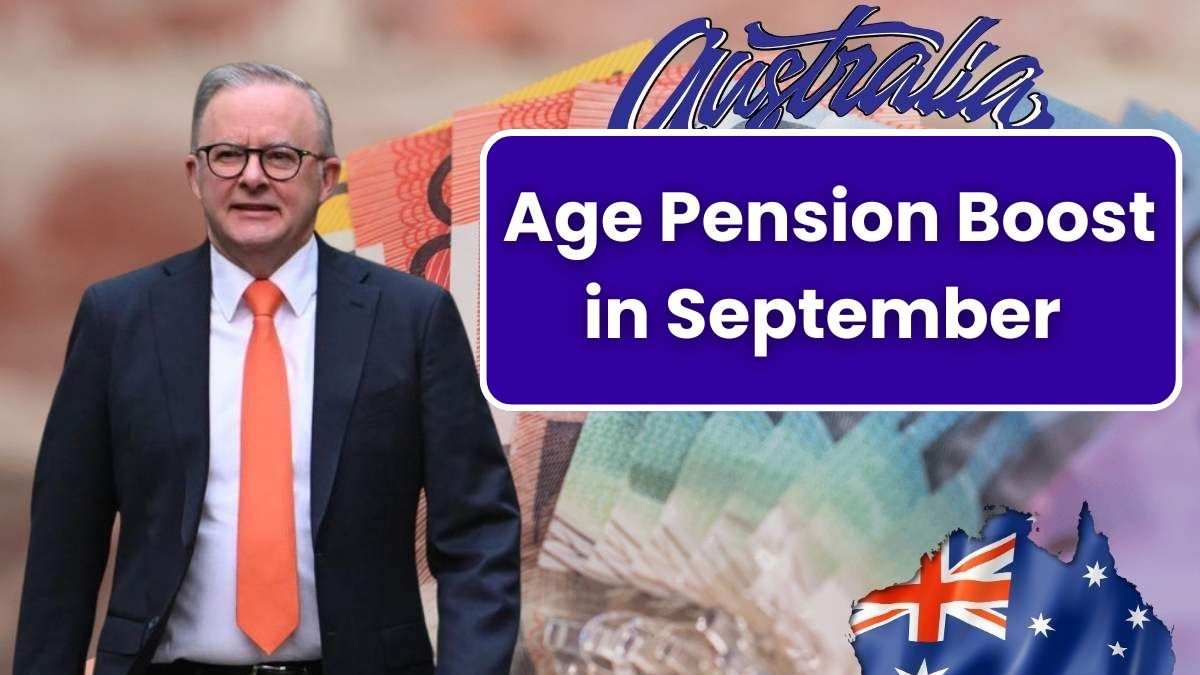Age Pension Boost: See, here’s the thing. Life is getting expensive in Australia. From groceries to medical bills, everything feels heavier on the pocket. To help seniors keep up, the government has announced a fresh lift in the Age Pension from September 20, 2025. This update isn’t just about putting a few extra dollars in the bank—it also raises the income and asset thresholds so more people can qualify.
It’s designed to give older Australians, whether living alone or with a partner, that little bit of breathing space when it comes to covering daily costs.
How Much More Will Pensioners Get?
From September 20, single pensioners will see their fortnightly payment move up to $1,178.70, while partnered pensioners will receive $888.50 each. That means singles are getting an extra $29.70, and couples will pocket an additional $22.40.
It might not sound huge at first, but when you add it up over a year, that’s hundreds of dollars more to help with bills, groceries, and healthcare. And remember, this increase is on top of the usual supplements.
Here’s a simple breakdown:
| Pension Type | Previous Total | New Total | Boost |
|---|---|---|---|
| Single | $1,149.00 | $1,178.70 | +$29.70 |
| Couple (each) | $866.10 | $888.50 | +$22.40 |
In plain words, singles will now be closer to $30 extra every fortnight, and couples just over $22 each. That’s steady, reliable money that builds up across the year.
Eligibility Rules – Who Can Get It?
The basic rule hasn’t changed: you need to be at least 67 years old to qualify for the Age Pension. But the September update also adjusts the income and asset limits, which means some people who weren’t eligible before may now fall under the pension safety net.
For example, a single homeowner can now hold up to $714,500 in assets (up from $704,500) and still be eligible. Non-homeowners get a slightly higher limit—$972,500. Couples have seen their limits climb too, with homeowners allowed up to $1,074,000 combined.
Here’s a quick snapshot of the new asset thresholds:
| Situation | Old Limit | New Limit | Change |
|---|---|---|---|
| Single, owns home | $704,500 | $714,500 | +$10,000 |
| Single, non-homeowner | $962,500 | $972,500 | +$10,000 |
| Couple (homeowners) | $1,059,000 | $1,074,000 | +$15,000 |
| Couple (non-homeowners) | $1,317,000 | $1,332,000 | +$15,000 |
The same boost applies to couples separated by illness, with their thresholds climbing even higher. Non-residents also benefit from adjusted limits, though slightly lower than residents.
Income Thresholds Are Rising Too
It’s not just assets. The amount you can earn before your pension gets cut has also been lifted.
- Single pensioners can now earn up to $2,575.40 per fortnight (up from $2,516).
- Couples together can earn $3,934 (up from $3,844.40).
- Couples separated by illness will have their combined income threshold lifted to $5,094.80.
These changes give seniors a little more flexibility to earn without losing their pension support.
Why This Matters
The government has tied this boost directly to inflation and the rising cost of living. Prices of everyday essentials, electricity bills, and medical care keep creeping upward. By adjusting pensions and the eligibility criteria, older Australians won’t be left struggling as much to make ends meet.
It’s not a jackpot windfall, but it’s steady financial relief that makes a practical difference month after month.
Conclusion
The Australia Age Pension Boost starting September 2025 is more than just an increase in payments—it’s a recognition of the tough times seniors are living through. With higher fortnightly payments, raised income limits, and increased asset thresholds, this change is meant to help older Australians live with dignity and a little less financial stress.
For many, that extra $20–30 each fortnight will mean not having to cut corners on medication, food, or heating. And sometimes, it’s those small steady boosts that matter most.
Disclaimer
This article is for general educational purposes only. Pension rules and payments can change, so always confirm the latest details directly with Services Australia or other official government sources before making financial decisions.
